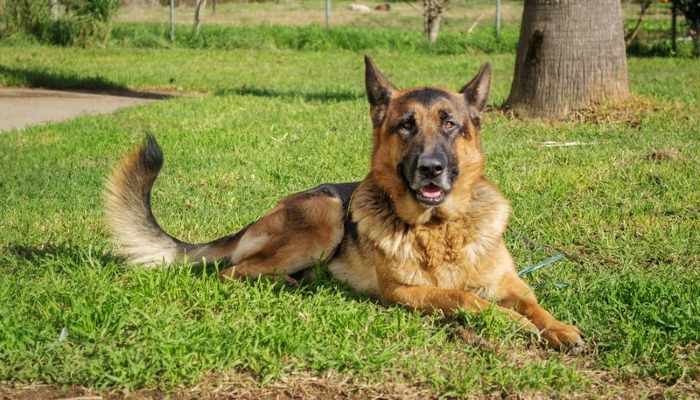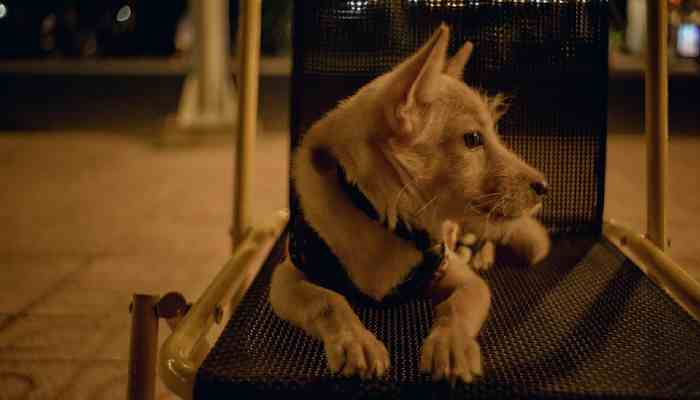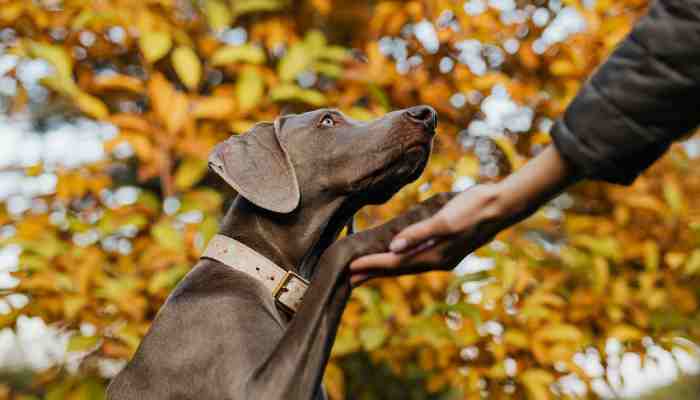Many of the same physical and mental changes that humans go through as they age can also occur in dogs. They might lose their youthful energy and become more vulnerable to conditions like diabetes and arthritis. Additionally, they can have trouble hearing and seeing, and they might require more frequent visits to the veterinarian for checkups and to treat any age-related problems.
It’s important to continue providing proper care for your senior dog, including a balanced diet, regular exercise, and mental stimulation. It’s also a good idea to keep an eye out for any changes in your dog’s behaviour or physical condition, and to consult with your veterinarian if you have any concerns. With proper care, senior dogs can continue to lead happy and healthy lives. Here are 10 signs that your senior dog may need some extra attention:
1. Changes in behaviour or personality
If your normally energetic and playful dog becomes lethargic or uninterested in activities they once enjoyed, it may be a sign that they are in discomfort or experiencing age-related changes. It’s important to be patient and understanding with your senior dog as they go through these changes, and to consult with your veterinarian if you have any concerns.
2. Difficulty moving or standing
Your dog may experience a decrease in mobility and may have difficulty standing or moving around as they used to. This can be due to a variety of age-related issues such as arthritis, muscle loss, and joint problems. If you notice that your senior dog is having mobility issues, the best thing to do is ask your vet to determine the cause and find a solution. With proper care and treatment, many senior dogs are able to maintain good mobility and continue to enjoy a good quality of life for long.
3. Changes in appetite or weight
Senior dogs frequently experience changes in appetite or weight, which can be brought on by a number of illnesses including metabolic changes, dental issues, or underlying medical concerns. It could be important to modify your dog’s diet to include additional calories and nutrients if they are losing weight. On the other hand, it could be important to change your senior dog’s diet to cut back on calories and up their exercise level if they are gaining weight. To assist your dog in maintaining a healthy weight, your veterinarian may suggest a specific diet or supplements.
4. Increased thirst or changes in urination habits
These can be a sign of underlying health issues in senior dogs and should be examined by a veterinarian. Increased thirst can be caused by a variety of factors such as kidney disease, diabetes, or other underlying medical conditions. Changes in urination habits can also be a sign of a health issue, such as a urinary tract infection or bladder stones. It’s recommended to talk with your veterinarian to identify the cause and decide the best course of action if you find that your doggy is consuming more water than usual or changing their urine habits. To evaluate the kidney function and general health of your dog, your vet may advise blood and urine testing.
5. Difficulty seeing
Dogs’ vision may alter as they become older, and they could find it challenging to see as clearly as they once did. Age-related illnesses including cataracts, glaucoma, and other degenerative diseases may be to blame for this. Here are few tips to help your dog with vision issues: keep your home well-lit to help your dog navigate around, avoid rearranging furniture or changing the layout of your home, and use a leash when walking outside.
6. Difficulty hearing
Dogs could experience changes in their hearing and may have difficulty hearing as they used to. This is due to a variety of age-related issues such as hearing loss or ear infections. Some tips regarding this issue are to use hand signals to communicate with your dog, and keep a consistent routine.
7. Changes in sleeping habits
As dogs age, they may require more rest or have a harder time sleeping through the night. Senior dogs frequently experience changes in their sleeping patterns, which can be because of ageing-related metabolic changes, underlying medical issues, or routine changes. Avoid disturbing your dog’s sleep as much as possible and make sure he/she has a comfortable and quiet place to sleep.
8. Increased anxiety or confusion
Increased anxiety or confusion is common in senior dogs and can be due to a variety of factors such as age-related cognitive decline, underlying health conditions, or changes in routine. Things you can do are to provide your dog with plenty of mental and physical stimulation, avoid making routine and home environment changes. If you notice your dog exhibiting these behaviours, it may be worth discussing with a veterinarian.
9. Bad breath or changes in teeth
Senior dogs are cherished members of the family, but they frequently have their own particular set of difficulties. Bad breath or tooth alterations are one of the difficulties. Dogs’ teeth can deteriorate and accumulate plaque as they age. An older dog could have teeth that are discoloured or missing in addition to having poor breath. Dogs can also develop gum disease, which is brought on by a buildup of plaque. Your dog may experience discomfort and anguish from any of these illnesses, and they all have the potential to worsen their health. The best way to prevent bad breath and other dental issues is to brush your dog’s teeth regularly. This will help to remove plaque and bacteria, and can help keep their breath fresh. If your senior doggy has already developed dental issues, it’s important to take them to the vet for a checkup.
10. Lumps or bumps
One of the most worrying things a senior pet parent can experience is finding a lump or bump on their beloved pup. Lumps and bumps can be scary, especially if they appear quickly or change in size or shape. The first thing to do if you find one is to take your pup to the vet for a thorough examination. Your vet will be able to determine if the lump is benign or malignant.
If you notice any of these signs in your senior dog, it’s important to consult with a veterinarian to determine the best course of action. With a little extra care and attention, you can help your furry friend age comfortably and happily.




